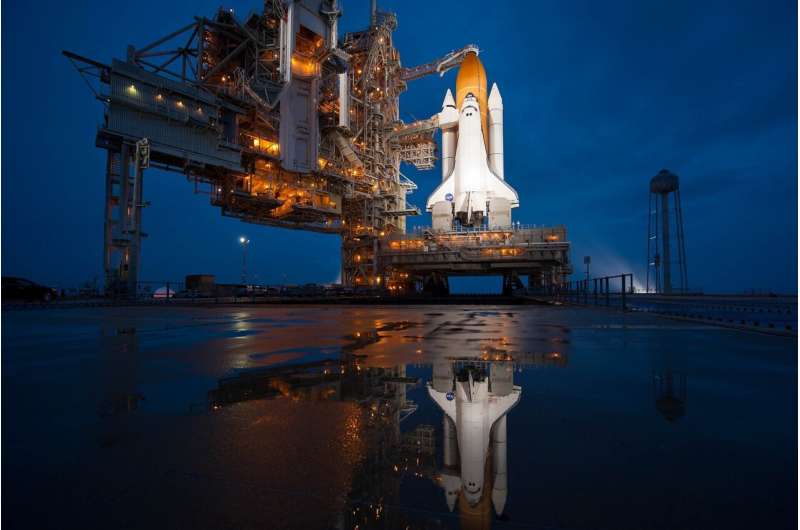This is due to a misconception that space only offers STEM-related jobs, as well as the overwhelmingly white and male make-up of the space industry, government and academia.
This not only impacts the workforce pipeline, but also potentially the sector's funding, due to a limited view of what kinds of solutions the space sector can provide to society's biggest challenges.
This is an urgent public relations issue for the space sector. It needs to rethink how it markets itself to the public to better recruit for a myriad of positions in fields like space law, policy, technology governance, social anthropology and archaeology, business, arts, communications and more.
The sector also needs to make diversity a priority. Currently, just one in five employees in the space industry are women. First Nations Australians also continue to be sidelined, despite the fact the majority of our ground-based infrastructure for space systems is on Indigenous lands.
We need greater inclusivity of perspectives from people of diverse genders, sexual orientations and ethnic and linguistic backgrounds, as well as people with disability. Research shows diverse and inclusive groups lead to greater trust, democracy and innovation, less "group think", more positive work environments and greater employee retention.
Additionally, greater diversity can make it easier to tell the story of why space technologies matter to society. This would help in terms of government funding and the industry's ability to punch above its weight globally.
A national conference on diversity in space
Last month, we brought together over 200 experts from the space industry, government, academia and the community to discuss these issues at the first-ever national conference on gender equality and diversity in space.
The participants agreed that diversity is an overlooked opportunity for the space sector. Many of the challenges facing the sector could be addressed by recruiting from a more diverse talent pool and ensuring diverse perspectives are being incorporated into technology design and solutions.
These are some of our key recommendations:
(1) Enhance workplace conditions and enact informal networks
Policy changes can help with diversity recruitment, such as tackling poor organizational cultures, offering equitable leave policies and improving current promotion and hiring policies.
But informal networks are important, too. There are networks for women in space in various countries, such as the US and New Zealand, which have proven to be vital in developing a more diverse workforce. A new Women in Space Network is soon to be launched in Australia.
(2) Don't just pay lip service to diversity
Diversity must be placed at the center of programs and policies in both the space sector and in governments at the federal and state/territory level. The space sector must also do a better job of explaining the importance of its work to government agencies.
(3) Establish diversity procurement policies
This includes minimum targets to support women-owned and First Nations-owned enterprises in the space sector and giving preference to space businesses that demonstrate improvements to diversity in their workforce.
Australia risks falling behind
In 2025, Australia will host the International Astronautical Conference, the largest annual conference for the space industry in the world. This is a great opportunity to showcase our leadership in promoting a values-based, diverse, equitable and sustainable space sector.
Yet, without tangible action now, Australia's space sector risks falling further behind our international counterparts.
The Australian Space Agency is currently working with a number of organizations, including the Global Institute for Women's Leadership, the ANU Institute for Space and the Australian Center for Space Governance, to develop our own policy for diversity in the space sector.
This is a step in the right direction, particularly in the wake of the latest budget. But the industry also needs to step up with data transparency on diversity, as well as tangible commitments and actions.
To this end, we are conducting research on improving diversity in the space sector. We are inviting anyone in government, industry and academic roles to take part in a survey to describe their experiences of inclusion, diversity, equality and access in their jobs. This input will contribute to Australia's statement on diversity and inclusivity in the space sector.
Provided by The Conversation
This article is republished from The Conversation under a Creative Commons license. Read the original article.![]()



